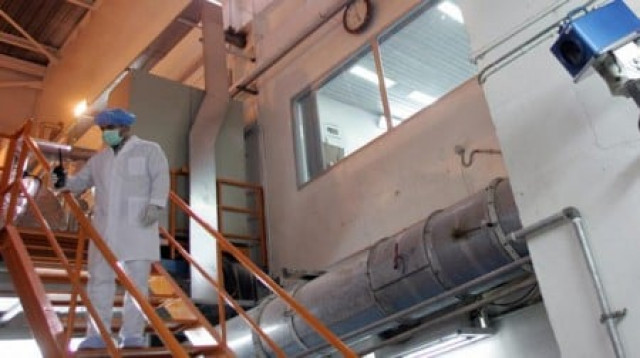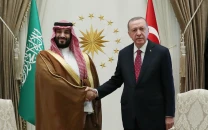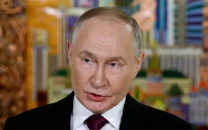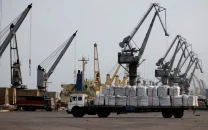Many countries support military action on Iran: poll

The Pew Research Center's poll conducted in 22 countries found majorities or pluralities in 16 countries endorsing the possibility of military intervention.
Americans are among the most supportive of a military option to deal with Iran with 66 per cent of those who oppose a nuclear-armed Iran saying they would consider the use of force, a figure second only to Nigeria's 71 per cent. Among Europeans, the views are more mixed. In France, 59 per cent said they would consider the use of military force to prevent Iran from developing nuclear weapons, but a sizeable minority of 41 per cent rejected this option.
Support for the military option is softer in Germany (51 per cent), Spain (50 per cent) and Britain (48 per cent), while significant numbers (39, 34 and 37 per cent, respectively) said it is more important to avoid a military conflict with Iran, even if it results in a nuclear-armed Tehran.
In the Muslim world, there is support for the use of military action to stop Iran from acquiring nuclear weapons in Egypt (55 per cent), Jordan (53 per cent) and Lebanon, with 44 per cent supporting such a notion and 37 per cent opposed. In Turkey, 37 per cent of those surveyed said avoiding a military conflict with Iran should be the priority while 29 per cent would consider the use of military force.
Pakistanis meanwhile largely support Iran's purported efforts to acquire nuclear arms: 58 per cent favor and just 10 per cent oppose Iran acquiring such weapons, the poll showed. Of the Pakistanis who oppose a nuclear-armed Iran, 34 per cent said avoiding a conflict with Iran should be the priority and just 21 per cent would endorse taking military action.
Russians were divided on the use of force, with 32 per cent in each camp, while the Chinese poll respondents favoured avoiding a clash by a margin of 43 to 35 per cent; in Japan the priority of avoiding conflict was endorsed by 55 per cent to 34 per cent.
The poll also showed widespread negative views of Tehran's Islamic regime and broad support for efforts to prevent the country from arming itself with atomic weapons.
"There is widespread opposition to Iran acquiring nuclear weapons and considerable support for tougher economic sanctions against the Islamic Republic," Pew said in its Global Attitudes Project poll. The poll found strong opposition to the Iranian nuclear effort and support for stronger sanctions in Spain (79 per cent), Britain (78 per cent), Germany (77 per cent) and France (76 per cent), as well as 67 per cent in Russia and 58 per cent in China.
Some 86 per cent in Germany expressed an unfavorable view of Iran, with the figure 81 per cent in France and 75 per cent in Japan. Iran had a positive image only in Pakistan and Indonesia in the poll, which surveyed 24,000 people in 22 countries between April 7 and May 8. European leaders on Thursday backed new sanctions on Iran, going further than new UN and US punitive measures, in the wake of a fourth set of sanctions approved by the UN Security Council slapped over Iran's refusal to halt suspect nuclear activities.



















COMMENTS
Comments are moderated and generally will be posted if they are on-topic and not abusive.
For more information, please see our Comments FAQ